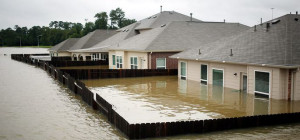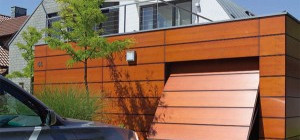 The weather appears to be improving and Spring is in the air making it the perfect time to get outside in the fresh air to get our gardens in shape and ready for the warmer months ahead.
The weather appears to be improving and Spring is in the air making it the perfect time to get outside in the fresh air to get our gardens in shape and ready for the warmer months ahead.
If you are keen to welcome wildlife into your garden and create a safe haven, you will find that just by gardening in a green, environmentally friendly way this will begin to happen slowly but surely.
SAY NO TO CHEMICALS
If you want to create a natural haven for wildlife, the first thing you need to do is to either completely stop or at least significantly reduce the use of any chemicals and opt for natural alternatives instead.
For example, instead of using toxic weed killers, pull the weeds and compost them or use a hoe and get fit in the process! Another option is to make your own, more natural alternative using a combination of salt and cider vinegar to zap persistent offenders effectively without the use of chemicals.
Using chemicals may be the easy option in the short term but with a little commitment on your part, you will reap the benefits of chemical free gardening in the long term.
SET UP YOUR OWN COMPOSTING AREA
Creating your own, nutrient rich compost is easy, great for the environment and saves you money too. Even in small gardens it makes sense to set up an area for composting all of your garden waste as well as suitable waste from your home including;
- Paper & cardboard
- Fruit & vegetable peelings
- Teabags & coffee grounds
- Egg shells
Aerate your compost each month by turning it with a fork, keep it moist and in no time at all you will have fabulous, free compost for your plants. Zero carbon footprint and no packaging required!
GREEN LIGHTING
I am not talking about using green bulbs here, but why not choose solar powered lighting for your garden, a cost effective, environmentally friendly way to light up your garden after dark especially if you spend a lot of time outdoors in the evenings.
PLANT A NATURAL BOUNDARY
Instead of walls and fencing, choose natural boundaries to define your garden. Hedges provide the perfect place for wildlife to shelter and hide, look fantastic and are easily maintained. The best way to see them is as a wildlife highway rather than a fence which provides no cover at all. If you need a decent height hedge in a hurry, choose well establish plants for an almost instant screen.
Fences of course are still OK though! Plant your hedge alongside the fence thus getting the security of a fence with all of the benefits the hedge will bring.
CREATING THE IDEAL HABITAT FOR WILDLIFE
In addition to planting hedges and shrubs, you will find that ponds and feeders can encourage a broad variety of little friends who will pay their way by keeping on top of pests like slugs and snails in the garden for you.
Nesting boxes attached to trees are a fantastic way of not just encouraging birds to nest in Spring time but also rear their young in your garden. Seeing fledgling birds appearing from the box is guaranteed to put a smile on anyone’s face and it is a fantastic experience for young children seeing this for the first time.
LOGS & GRASS
Small piles of logs or brush can help to encourage a variety of invertebrates to set up home in your garden too and even in small gardens you can make a big difference by simply leaving a few patches of long grass around the trees or in corners. Old wood and leaves left to break down provide an excellent habitat for all kinds of different fungi and wildlife.
RAINWATER
Collect as much precious rainwater as you can during the wet months using a water butt connected to downpipes on your home or shed. Lots of plants will grow much more successfully when watered using rainwater rather than tap water and water butts can be conveniently placed in any area that is far away from the nearest tap.
Try to do your watering in the evening to minimise the amount of water that evaporates and avoid causing unnecessary sun damage to your plants.
GREY WATER
Whilst it is not recommended for use on your vegetable plot, because of some of the products that may be used in the home, recycling your grey water is a good way to maintain your garden and keep it healthy.
HELP WILDLIFE
Even if you can just implement one or two of these tips you’ll be helping wildlife of all shapes and sizes to flourish in your garden. Companies like Evergreen Hedging and garden centres are always encouraging gardeners to manage their gardens in a more environmentally sustainable way as ultimately a good garden is not one just appealing to people but wildlife as well.







